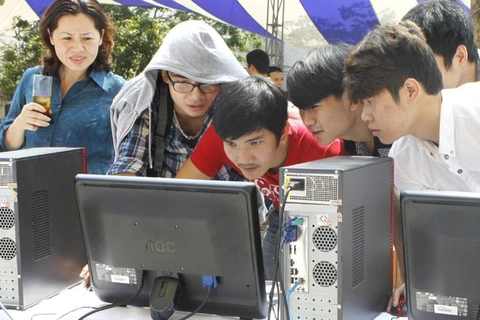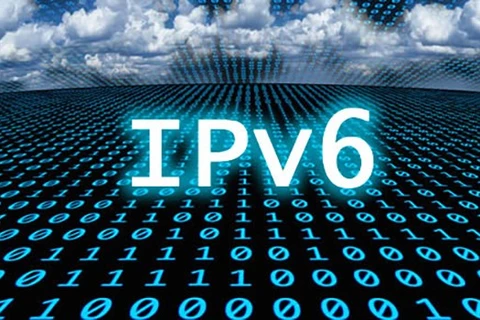 By the end of December 2017, 4.3 million Vietnamese people had used the new-generation internet. (Source: VNA)
By the end of December 2017, 4.3 million Vietnamese people had used the new-generation internet. (Source: VNA) Hanoi (VNA) – The use of Internet Protocol version 6 (IPv6) in Vietnam in 2017 grew by 200 percent from 2016, heard a conference held by the Vietnam Internet Centre under the Ministry of Information and Communications (MIC) in Hanoi on January 16.
A report presented at the event reveals that many organisations, businesses and individuals shifted from IPv4 to IPv6. By the end of December 2017, up to 4.3 million Vietnamese people used the new-generation internet.
Nguyen Thi Thu Thuy from the Vietnam Internet Centre said in the year, Vietnam’s IPv6 infrastructure remained stable, and all big businesses have connected with each other through IPv6 and expanded their international IPv6 links.
She attributed the marked growth rate to efforts made by FPT Telecom JSC, Vietnam Posts and Telecommunications Group (VNPT) and FPT Online Service JSC.
By the end of 2017, 4,000 “.vn” domain names had operated with IPv6, as compared with only 100 in 2016. As many as 19 out of 27 websites of State agencies using “gov.vn” domain had also adopted IPv6.
The rate of IPv6 usage in Vietnam was reported at 10 percent, making the country rank third in ASEAN and fifth in Asia, after India, Japan, Malaysia and Thailand.
However, the rate remains low as compared with the globe’s average, which is expected to increase by half in 2019, according to Nguyen Hong Thang, Deputy Director of the Vietnam Internet Centre.
To catch up with the world’s pace, in 2018, he urged the MIC to keep a close watch on the national action plan on IPv6, and IT departments of Party and State agencies to increase the use of IPv6, especially in online public services.
IPv4 is the fourth version in the development of the Internet Protocol, which is one of the core protocols of standards, based on Internet working methods and routes most of the traffic on the Internet.
Meanwhile, IPv6 is the upgraded version of IPv4, with larger address space, which will help deal with IPv4 exhaustion.-VNA
VNA























